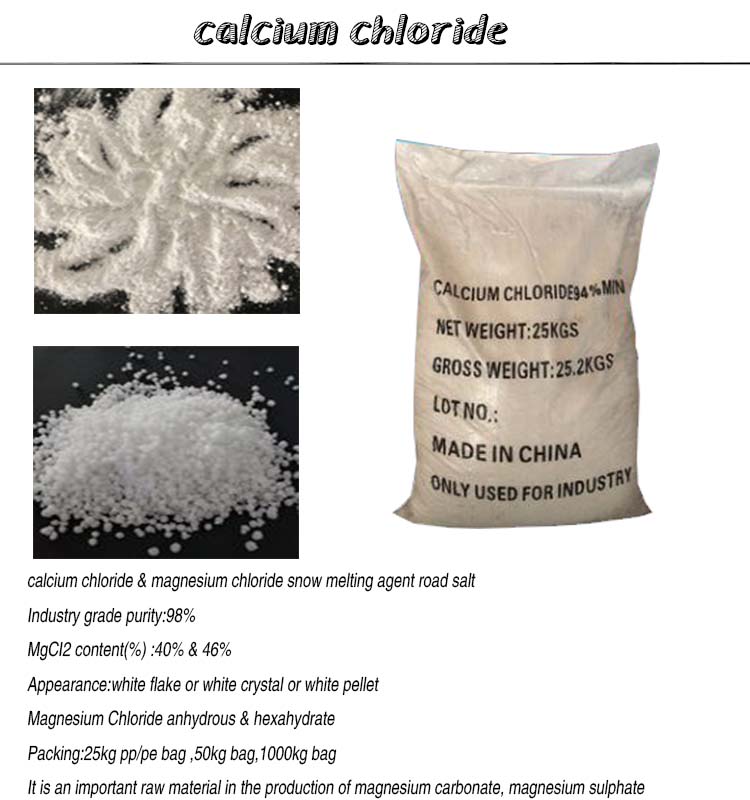--
Calcium chloride is an inorganic compound, a salt composed of chlorine and calcium, and is a typical Ionic halide. The traits are white, hard pieces or particles. Slightly bitter, tasteless. Calcium chloride has outstanding adsorption ability and low desorption temperature for ammonia, and has great application prospects in the synthesis of ammonia adsorption and separation. However, because calcium chloride is not easy to form a stable porous material, the contact area with gas ammonia is small, and it is easy to expand and block during adsorption and desorption, so it is difficult to put it into practical application in this regard. The contact area between calcium chloride and gas ammonia can be greatly increased by carrying calcium chloride on a high specific surface carrier. Studies have shown that the composite adsorbent prepared by carrying calcium chloride on molecular sieve has better adsorption performance and stability than single adsorbent.
Calcium chloride, a salt consisting of chlorine and calcium, has the chemical formula CaCl2. It is a typical Ionic halide and is a white solid at room temperature. Common applications include salt water, road ice melting agents and desiccant for refrigeration equipment. Because it is easy to absorb moisture in the air for deliquescence, anhydrous calcium chloride must be stored in a sealed container. Calcium chloride and its hydrates and solutions have important application values in food manufacturing, building materials, medicine and biology.